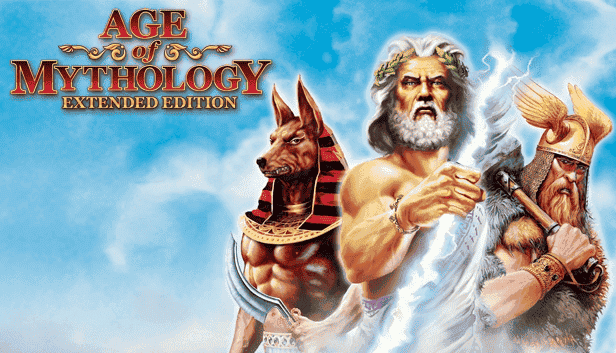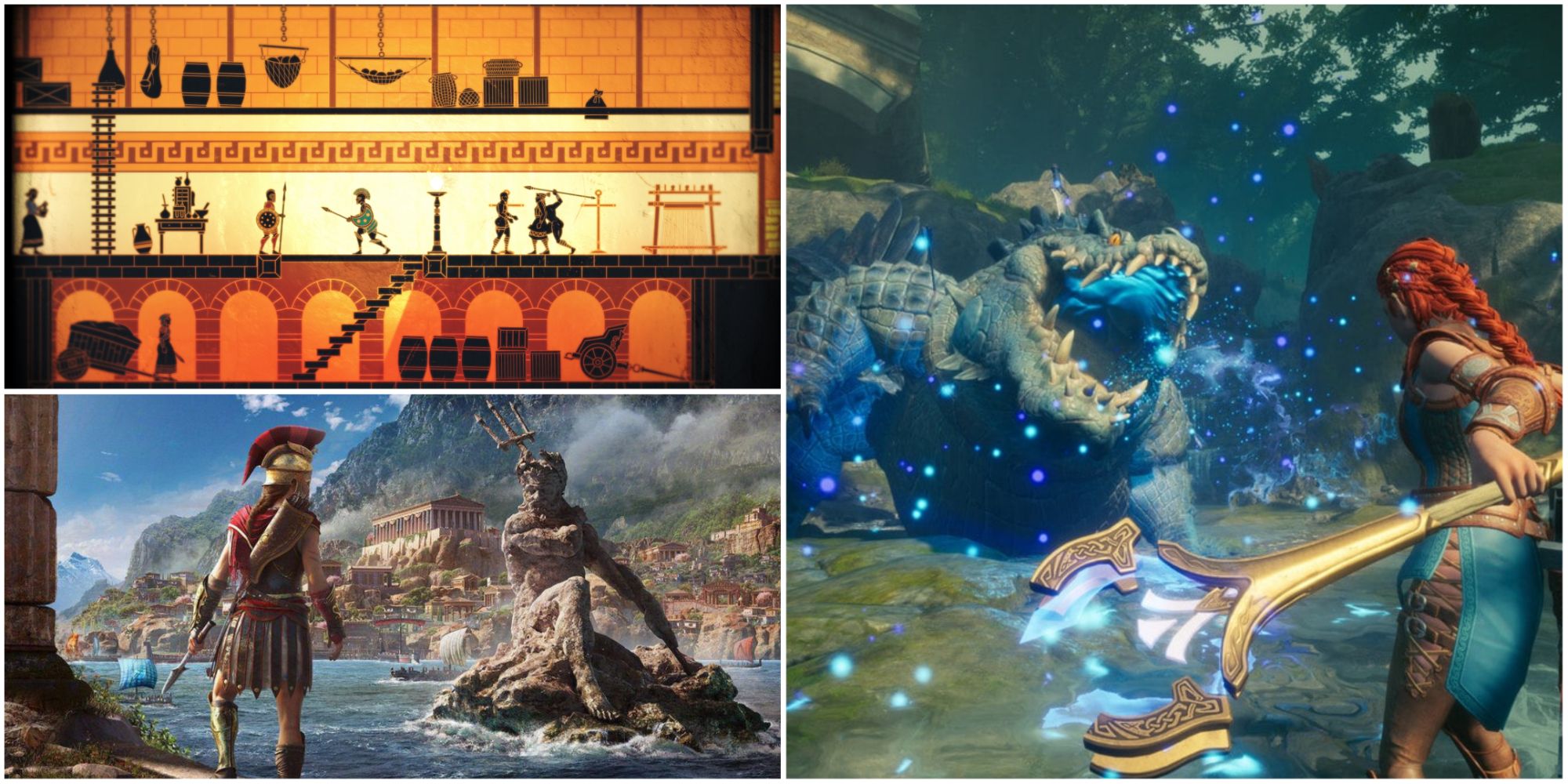
Lost in Translation: How Adventure Games Breathe New Life into Ancient Myths
For millennia, myths have served as cornerstones of human understanding. They’ve shaped cultures, explained the inexplicable, and provided moral compasses through fantastical tales of gods, monsters, and heroes. These stories, passed down through generations, resonate with us even today, tapping into a primal yearning for meaning and adventure. It’s no surprise then that the rich tapestry of mythology has proven fertile ground for video games, particularly the adventure genre, which allows players to step into the sandals (or winged boots) of legendary figures and experience these narratives firsthand.
Adventure games, with their emphasis on exploration, puzzle-solving, and character interaction, are perfectly suited to translating the complexities and grandeur of myth into interactive experiences. They offer a unique opportunity to not just passively consume these stories, but to actively participate in them, making choices that impact the narrative and forge a personal connection to the mythic world.
The Allure of the Familiar and the Power of Reinterpretation:
One of the key reasons for the enduring appeal of myth-based adventure games lies in their ability to leverage pre-existing knowledge. Players often come to these games with a foundational understanding of the source material, be it the trials of Odysseus, the labors of Hercules, or the creation myths of various cultures. This familiarity provides a comforting entry point, a sense of recognition that draws them into the game world.
However, mere replication of the original myths wouldn’t be enough to capture the imagination of modern audiences. The true magic lies in the reinterpretation, the creative license developers take to expand upon, challenge, and modernize these ancient narratives. This can manifest in several ways:
- Expanding the Canon: Games can delve into lesser-known aspects of a myth, exploring the lives of supporting characters or filling in gaps in the established lore. For example, a game based on Greek mythology might focus not on the well-trodden paths of Zeus and Hercules, but on the trials of a forgotten nymph or the political machinations of a minor god.
- Challenging the Narrative: Developers might choose to subvert expectations, presenting alternative interpretations of events or questioning the traditional portrayal of characters. A game could portray Hades not as a malevolent overlord, but as a misunderstood ruler striving to maintain balance in the underworld. Similarly, a game might explore the perspective of the monsters slain by heroes, humanizing them and questioning the morality of their actions.
- Modernizing the Themes: While remaining faithful to the core essence of the myth, games can update the themes and messages to resonate with contemporary audiences. A game based on the myth of Pandora’s Box, for example, could explore the dangers of unchecked technological advancement or the importance of hope in the face of despair.
Examples of Mythic Adventures Done Right:
Several adventure games have successfully navigated the delicate balance between honoring the source material and forging their own unique identities. Here are a few notable examples:
- Titan Quest (2006): While technically an action RPG, Titan Quest draws heavily on Greek, Egyptian, and Asian mythology, immersing players in a world teeming with mythical creatures and gods. The game’s strength lies in its faithful recreation of these mythic landscapes and its incorporation of key narrative elements from the original stories. Players battle cyclopes, navigate the labyrinth of Crete, and even encounter the gods themselves, all while experiencing a compelling original storyline.
- God of War (2018): This soft reboot of the God of War franchise reimagines Kratos, the rage-fueled Spartan warrior, as a weary father navigating the treacherous world of Norse mythology. While the game retains the series’ signature combat, it also emphasizes exploration, puzzle-solving, and character development. The shift to Norse mythology allows the game to explore themes of fatherhood, responsibility, and the cyclical nature of violence, creating a deeply emotional and thought-provoking experience.
- Hellblade: Senua’s Sacrifice (2017): While not explicitly based on a single myth, Hellblade draws heavily on Norse mythology and Celtic folklore to create a psychologically harrowing and visually stunning experience. The game follows Senua, a Celtic warrior suffering from psychosis, as she journeys into the Norse underworld to save the soul of her dead lover. The game’s portrayal of mental illness, combined with its exploration of Norse mythology, creates a unique and unforgettable adventure.
- Unavowed (2018): This point-and-click adventure game features a compelling narrative that intertwines with elements of folklore and mythology, primarily focusing on the supernatural world of New York City. Players investigate paranormal events, encountering ghosts, demons, and other entities drawn from various cultural traditions. The game expertly blends urban fantasy with classic adventure game mechanics, offering a fresh and engaging take on the genre.
The Power of Choice and the Evolution of Storytelling:
Adventure games based on myths excel at offering players agency within these established narratives. While the overall arc of a myth may be predetermined, the player’s choices and actions can significantly impact their personal journey and the fates of the characters they encounter.
This element of choice is crucial for several reasons:
- Enhanced Immersion: By allowing players to make decisions that affect the story, the games foster a stronger sense of immersion and ownership. Players are no longer passive observers but active participants in the mythic world.
- Moral Ambiguity: Many myths are rife with moral complexities, presenting characters with difficult choices that have no easy answers. Adventure games can leverage this ambiguity by presenting players with similar dilemmas, forcing them to grapple with ethical considerations and question the traditional notions of good and evil.
- Multiple Endings: The inclusion of multiple endings, based on the player’s choices, adds replayability and encourages exploration of different perspectives. This allows players to fully immerse themselves in the myth and discover the various possible outcomes of their actions.
Challenges and Opportunities for the Future:
While adventure games have successfully mined the rich vein of mythology, there are still challenges to overcome and opportunities to explore:
- Cultural Sensitivity: Developers must be mindful of the cultural context and significance of the myths they are adapting. It is crucial to avoid cultural appropriation or misrepresentation and to treat these stories with respect and sensitivity. Consultation with cultural experts and communities is essential to ensure authenticity and avoid perpetuating harmful stereotypes.
- Expanding Beyond Western Mythology: While Greek and Norse mythology have been well-represented in adventure games, there is a vast and untapped reservoir of stories from other cultures around the world. Exploring myths from Africa, Asia, South America, and Oceania could introduce players to new and fascinating narratives and broaden their understanding of different cultures.
- Innovating Game Mechanics: The adventure game genre is constantly evolving, and developers must continue to innovate game mechanics to create fresh and engaging experiences. This could involve incorporating elements of other genres, such as RPGs or strategy games, or experimenting with new forms of storytelling, such as branching narratives or dynamic world-building.
Conclusion:
Adventure games based on myths offer a compelling blend of familiarity and innovation, allowing players to engage with ancient narratives in a new and interactive way. By reinterpreting, expanding upon, and challenging these stories, developers can create experiences that are both entertaining and thought-provoking. As technology continues to evolve and the adventure game genre continues to innovate, we can expect to see even more immersive and engaging myth-based adventures in the future, further blurring the lines between storytelling and gameplay and breathing new life into the timeless tales that have shaped our world. These games not only entertain but also educate, fostering a deeper appreciation for the rich tapestry of human history and the enduring power of myth. The adventure genre, therefore, serves as a vital bridge between the ancient world and the modern age, ensuring that these stories continue to resonate with audiences for generations to come.

